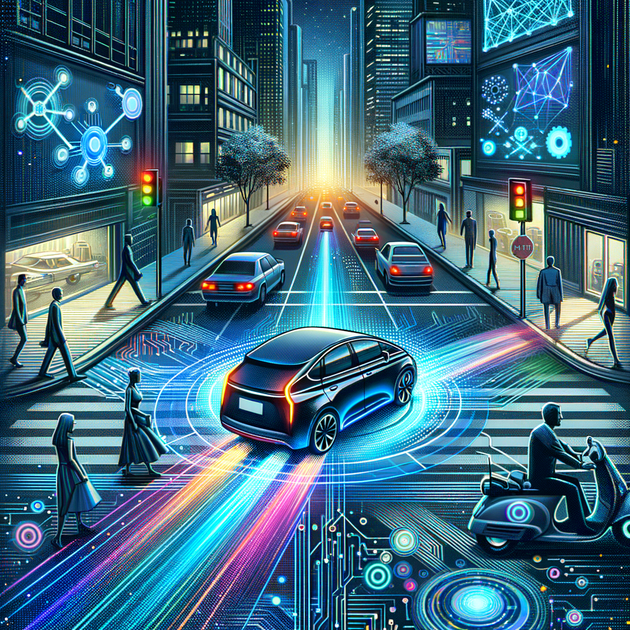The Hidden Risks of AI: Are Autonomous Cars on the Brink of Uncharted Knowledge?

The quest for autonomous driving technology is not without its share of ethical debates and potential risks. Is there a chance that the pursuit of self-driving cars might tap into knowledge best left unknown?
The Allure and Dangers of Knowledge
From the Garden of Eden’s forbidden fruit to the atomic bomb, history is rife with examples where the pursuit of certain knowledge has led to unforeseen consequences. This timeless dilemma begs the question: Are there realms of knowledge that humanity should avoid?
The underlying fear is that such knowledge, once discovered, could have devastating consequences. This concern extends to the development of autonomous vehicles (AVs) powered by artificial intelligence (AI).
Knowledge: A Double-Edged Sword
Knowledge is a powerful tool that can either uplift or destroy. Nuclear technology, for instance, offers both clean energy and the threat of annihilation. Similarly, AI has the potential to revolutionize industries while also posing significant ethical dilemmas.
When it comes to AVs, an emerging concern is whether the development of true self-driving cars might inadvertently uncover forbidden knowledge about AI and human cognition.
Autonomous Vehicles: A Brief Overview
Autonomous vehicles are categorized into different levels based on the amount of human intervention required:
- Level 2 and Level 3: Semi-autonomous vehicles that require human drivers to manage certain tasks.
- Level 4: High automation where the vehicle can perform all driving tasks under certain conditions without human intervention.
- Level 5: Full automation with no need for human drivers under any conditions.
The ultimate goal is to achieve Level 5 autonomy, but getting there might require delving into knowledge that some consider forbidden.
The Forbidden Knowledge Dilemma
Could the pursuit of AI-driven AVs lead us to forbidden knowledge? What if understanding human cognition to such a degree unlocks capabilities that are dangerous?
“It is conceivable that the cognitive mechanisms required to enable true self-driving cars might uncover facets of human intelligence and reasoning that we are better off not knowing.”
The Debate on AI and Cognitive Knowledge
Human intuition and common-sense reasoning play significant roles in everyday driving. Recreating these complex cognitive processes in AI might necessitate uncovering deeply embedded mechanisms in human thought that could pose risks if misused.
Some AI researchers assert that achieving Level 5 autonomy will require breakthroughs in understanding common-sense reasoning—breakthroughs that could inadvertently reveal forbidden knowledge.
Ethical Considerations and AI
The ethical implications of AI in AVs extend beyond technical capabilities. Biases in AI and ethical decision-making algorithms have been subjects of intense scrutiny. Ethical frameworks are crucial to guide the development and deployment of AI technologies responsibly.
AI Bias and Ethics
AI systems are known to harbor biases based on the data they’re trained on. Ensuring that AVs make fair and safe decisions involves addressing inherent biases and building robust ethical guidelines.
The Road Ahead
While the debate over forbidden knowledge continues, the march toward more advanced AI and autonomous vehicles is relentless. Vigilance and ethical considerations must accompany technological advancements to ensure that the pursuit of knowledge benefits humanity without crossing dangerous thresholds.
As we edge closer to developing fully autonomous vehicles, we must ponder: are we ready to face the ethical and philosophical challenges that come with it?
What do you think about the potential risks of AI-driven AVs? Drop your thoughts in the comments below. Let’s spark a meaningful discussion on the future of AI and its ethical boundaries.
